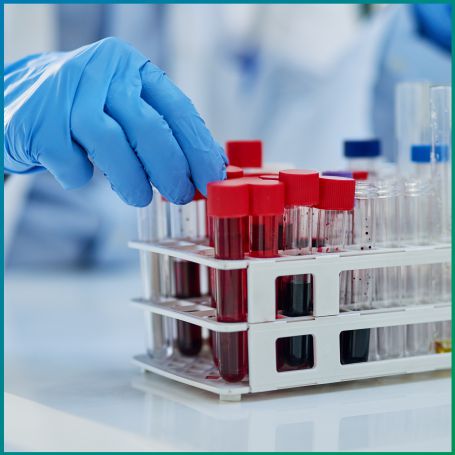
Hepatitis C is a viral infection that primarily affects the liver, leading to both acute and chronic diseases.

The HCV antibody test, also known as the hepatitis C virus antibody test, is designed to detect antibodies in your blood that your body produces in response to the hepatitis C virus. These antibodies are produced by the immune system in response to an HCV infection.
1] Hepatitis C Antibody Screening Test - The hepatitis C antibody screening test is a preliminary test to check for the presence of HCV antibodies. It is often the first step in diagnosing hepatitis C. If the test is positive, further testing is needed to confirm the infection.
2] HCV Rapid Card Test - The HCV rapid card test is a quick and easy way to test for HCV antibodies. It involves placing a drop of blood on a test card, and results are typically available within 20-30 minutes. This test is highly convenient, especially in settings where quick results are needed.
3] HCV Card Test - Similar to the rapid card test, the HCV card test is another method of testing for HCV antibodies. It uses a card format to provide quick results and is often used in clinics and community health centres.
You should choose Diagnopein for your HCV Antibody test because we are committed to providing high-quality diagnostic care in a clean and hygienic environment. Our center is equipped with advanced technology to ensure accurate and reliable test results, which are crucial for assessing this test. Diagnopein’s experienced staff is dedicated to handling tests with precision and care, offering you both expertise and comfort. We also offer affordable pricing, making essential health diagnostics accessible without compromising quality. For timely, professional, and affordable cardiac testing, Diagnopein is your trusted partner for your healthcare.
1. HCV CARD
No, fasting is not required before taking the HCV antibody blood test. You can eat and drink normally before the test.
The test is performed by drawing a small sample of blood from a vein in your arm. The sample is then analyzed in a laboratory to check for the presence of HCV antibodies.
The HCV antibody test is a low-risk procedure. The most common risks are slight bruising or discomfort at the blood draw site. Serious complications are rare.
No, if you have a positive HCV antibody test, you cannot donate blood. Blood donation centres screen for hepatitis C to prevent the virus from being transmitted through transfusions.